As the nation comes to grips with the Dec. 14 shooting rampage at the Sandy Hook Elementary School in Newtown, Conn., the nation’s capital braces for the rush to restrict gun rights.The Newtown shooting is the first mass school shooting since the April 20, 1999 shooting in the Littleton, Colo., at the Columbine High School, where 12 students and one teacher were killed by a pair a gunmen, who like the killer in Newtown, killed themselves in the midst the carnage.
Time will tell what will come in the wake of the Newtown shooting, but Columbine was a cultural earthquake and in the hysteria that followed sent Republican leaders in a panic. It was a panic that nearly led to the GOP restricting gun rights—not the Democrats.
This is the inside story of how I held back the Republicans from curtailing our gun rights until help arrived.Washington is full of brave people when times are good and cowards when things get tough.
There is perhaps no greater example than the Congress’ reaction — in particular the Senate’s reaction. In the course of a few hours, lifelong self-proclaimed advocates of the Second Amendment were looking to enact the most sweeping gun control legislation in a generation.
They almost succeeded.
We were in our offices in the Capitol building when news broke on CNN of a school shooting in Columbine. We watched in horror as students scurried out of their classrooms trying to avoid the rain of bullets.

Before the bodies had been buried there was a call for Congress to enact new gun control legislation. The Democrats and the press focused on that fact that Eric D. Harris and Dylan B. Klebold had procured their weapons through the use of a “straw man” purchaser, who bought a rifle and a shotgun from a gun show for the pair. The fact that purchasing a gun on behalf of another person was illegal, President William J. Clinton and his allies were demanding Congress shutdown gun shows.
Shutting down gun shows has been the dream of Democrats. The shocking aspect of the coming floor debate was not that Sen. Frank R. Lautenberg (D.-N.J.) and Sen. Charles E. Schumer (D.-N.Y) were pushing another gun control scheme.
The April 20, 1999 shooting massacre at Columbine High School, Littleton, Colo., was a national tragedy. In the aftermath of the shooting, Sen. C. Trent Lott Sr., (R.-Miss.), the majority leader, led his other GOP senators, such as Sen. Charles T. Hagel (R.-Neb.) to pass a gun control bill before the Memorial Day recess.It was that a number of formally stalwart supporters of the Second Amendment were piling on.
Sen. Orrin G. Hatch (R-Utah), a longtime foe of gun control bills, had introduced his Juvenile Crime Bill in Jan. 20, 1999, but it languished until it became the vehicle to exploit the Columbine tragedy.
Lott scheduled the gun show ban legislation in haste. No committee hearings. No mark-ups.
Hatch joined Sen. Herbert R. Kohl (D-Wis.) to amend his own bill with an amendment to require anyone selling a gun to equip it with a safety lock. The push for “gun locks” was fueled by two groups looking at a huge payday. The gun lock and safe companies were all over the Capitol trying to convince members to make their products a federal requirement. The other group was the trial lawyers, who would have a whole new line of lawsuits to file based on unlock or otherwise poorly secured firearms.
In the House, Rep. Thomas W. Davis (R.-Va.), who chaired the National Republican Congressional Committee, the fundraising arm for GOP House races, was the champion for gun locks in the other chamber.
Sen. John D. Ashcroft (R.-Mo.) offered an amendment to ban youth from possession of most weapons, even for hunting. Imagine.
The hysteria for more gun control legislation was snowballing and headed for the House of Representatives—where I worked as a staffer for the Republican leadership.
By May 20, after 10 days of debate, the Senate passed, with Vice President Albert A. Gore Jr., casting the deciding vote for the “Gun Show Sale Regulation Amendment,” sponsored by Lautenberg. The amendment would define a gun show as an event with 10 vendors with 50 guns for sale, and it would require all participants, including customers, to be registered with completed background checks before any steps towards planning the gun show could begin.
If the provision went into law, the gun show would simply gone away. The most dramatic restriction of gun rights since the Gun Control Act of 1968. It was a political hot potato tossed to the House and the pressure was building to pass the bill before the Memorial Day recess.
The House Republican leadership quickly met to decide what to do with the legislation. House Judiciary Committee Chairman Rep. Henry J. Hyde (R.-Ill.) came in to advocate quick passage of the bill.
One member of leadership, Deborah D. Pryce (R.-Ohio) told the room: “If we don’t pass the bill, we are going to lose our re-election. Let’s just pass it as is.”
The Speaker Rep. J. Dennis Hastert (R.-Ill.) was in agreement.
House Majority Whip Thomas D. Delay (R.-Texas) and I had planned for such an argument.
We concocted a scheme to delay consideration of legislation until after Memorial Day.
The delay would allow the National Rifle Association to activate its three million members and help turn the tide. By the time Congress returned, the phones to Congress would be burning with angry gun owners demanding they oppose the bill.
There are two main outside groups protecting gun rights on Capitol Hill, the NRA and Gun Owners of America. The NRA tends to take a longer view of things and is seen a more moderate than GOA that never gives an inch, even if an inch would set up another victory later on. The two work complement each other well, but neither camp will admit it.
Standing alone against the rest of the leadership team, DeLay forcefully spoke up about the need to examine the bill and determine what exactly that was it before moving it to the floor. The Speaker relented agreeing to wait till after Memorial Day to consider the legislation. That was the first step to victory.
Shortly thereafter, we huddled with the NRA leadership the plot strategy in DeLay’s office in the Capitol. James JayBaker, the executive director of the NRA’s Institute for Legislative Affairs; Wayne LaPierre, the NRA CEO and Christopher W. Cox, who now has Baker’s job, joined us for the session. Baker was key because he have had strong relationships with Blue Dog Democrats in the House including Michigan Rep. John D. Dingell.
Dingell was an ardent opponent of gun control and could always be counted on to support the Second Amendment. He also was influential on the Democrat side of the having been elected in the 1955 in the special election to succeed his father, who had represented the district in Congress since 1933. He knew the game better than anyone. We agreed to craft an alternative that would essentially gut the bill but the key was to get Dingell onboard. Baker went to work.
Within 24 hours Baker secured Dingell’s commitment to help and Baker brought Dingell in through a back door in the Capitol to consummate the agreement.
Delay was extremely deferential. He called Dingell “The Dean,” in recognition of Dingell’s longstanding service in the House. Dingell asked how many votes he would need the Democrats side to pass the amendment.

DeLay said 40.
Dingell said to the Texan, “I will get you 40.”
DeLay said, “I’ll get you the rest.” The deal was cut. It took all of five minutes. But it would change the course of history, not just by heading off more gun control, but in the final analysis, it had as big a role in the 2000 presidential election as the ballot count in Florida.
Despite their age and political differences, DeLay and Dingell were cut from the same cloth when it came to making a promise. If they gave you their word, they lived up to it.
The Dingell amendment allowed gun dealers to meet face-to-face with a customer, thus undercutting the defintion the sale taking place in a “gun show.” The amendment also required a background check of the customer within 24 hours of the sale, which was a direct retort to the amendment by Rep. Carolyn McCarthy (D.-N.Y.), which would required an instant background check that had to be completed before the actual sale. While the McCarthy amendment failed 193-235, Dingell provided cover to supporters of gun rights, who needed to be in favor of a “background check.”
We knew that if the Dingell Amendment passed, gun control advocates would recognize it as a poison pill and oppose the bill on final passage. At the very least it would muck the process up, leaving a conference committee to work out differences in the House and Senate passed bill. The House would never pass the Senate version and the pro-gun control Senate would never pass the House version. The bill would crater.
That’s exactly what happened, but it was not that easy.
Remember, the DeLay-Dingell strategy relied on passing the Senate Republican’s gun control bill with the gutting amendment that would be cloaked as a pro-gun control measure. The other half of the strategy was that we knew the Democrats would pursue an all-or-nothing strategy. Because we knew they would reject even the most reasonable compromise, we had more freedom to craft our amendments.
But not every member of Congress is smart enough to grasp legislative strategy.
As we lined up votes, we had to convince pro-gun rights GOP members to vote for Dingell amendment, even though they hated it. One really tough nut to crack was Rep. Robert L. “Bob” Barr Jr. (R.-Ga.), who served on the NRA’s national board. He could not understand why we were asking him to vote for “gun control lite.”
Another strong support of gun rights Rep. John N. Hostettler (R.-Ind.) argued in a meeting with DeLay that he would rather see the bill pass and have it repealed at a later date. When we asked him to give us an example of that happening, h could not. He was befuddled. Rep. John T. Doolittle (R.-Calif.), who got his start in politics working for California state Sen. H.L. Richardson, the founder of Gun Owners of America, said he could never vote for any form of gun control. After weeks of work, he agreed to “be there if we needed him.” He finally understood. We even convinced GOA not to score against the vote, which was a major signal that they onboard with the strategy.
To be honest, I don’t think the Speaker or his staff, who were much more supportive of “doing something,” ever grasped what was happening.
In the middle of the our legislative maneuvering, Hastert volunteered to reporters that he supported raising the age of gun ownership to 21.
It was never easy.
When the Rules Committee began consideration of what amendments we make in order, we made further trouble for the gun control advocates by allowing votes on Amendments designed to protect Second Amendment rights. Doolittle offered an amendment to secure the “Sense of Congress” that the Second Amendment allowed individuals the Right to Keep and Bear Arms. We allowed another vote on the amendment by Rep. Virgil H. Goode Jr., (R.-Va.) that would have ended the District of Columbia’s gun ban, which failed 175-250 and the amendment by Rep. Duncan Hunter that would have allowed D.C. residents to keep a gun in their home. The Hunter amendment passed 213-208. The full ending of the D.C. gun ban would not come until it was ultimately ruled unconstitutional by the Supreme Court in its Heller decision.
Another thing we did in the Rules Committee is we split the bill into a cultural bill and a regulatory bill, so that in our two-day debate, we debated the cultural bill on Day One and the regulatory bill on Day Two.
The cultural bill was a masterpiece. We passed provisions that allowed thee family members of victims of gun violence to sue movie studios and video game producers for their role in fomenting violence. Another provision
As we did our job inside the Capitol and the NRA did its job outside the Capitol.
The NRA had done its job well. Millions of citizens from across the nation weighed in for Dingell’s amendment. We bought them time and they finished the job. Dingell did his job. He offered the amendment and ultimately got 45 Democrats to vote “Yea.” We did our job getting the House Leadership and 173 Republicans to support the measure. Dingell’s amendment passed on a 218 to 211 vote — enough to allow the hard core “gun guys” like Doolittle to vote no at the end.
When the bill came up for final passage, only 81 Democrats voted for it. 206 House Republicans voted to send the bill to a Conference Committee where it would die a slow and painful death. The bill never saw the light of day again despite efforts by some Republicans in the Senate — especially C. Stewart Verdery, a staffer for Oklahoma’s Sen. Donald L. Nickels to revive the bill.

Verdery as adamant in the GOP’s joint leadership meetings. He said once the House passed the bill, it should move to conference, so it could go to the president for signature.
“You can’t not go to conference,” he said to the House leadership. “You cannot bottle up this bill.”
By the time November rolled around, fortunes for gun control had turned. After the fever of outrage and sorrow broke, the American people were not in the mood to give up their gun rights.
Gore, who cast the deciding vote to end gun show in America in the Senate, may have also been casting the vote that cost him the White House against George W. Bush. His willingness to support gun control, cost his home state of Tennessee—whose 11 electoral votes would have given Clinton’s vice-president 277 votes v. Bush’s 260, and Florida would not have mattered.

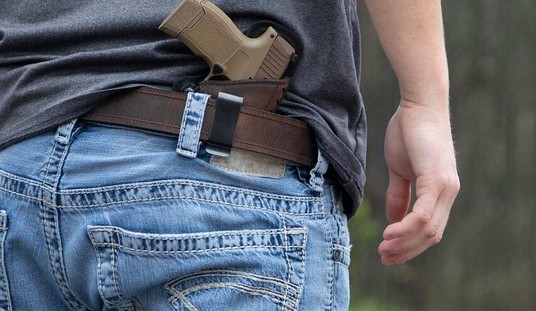

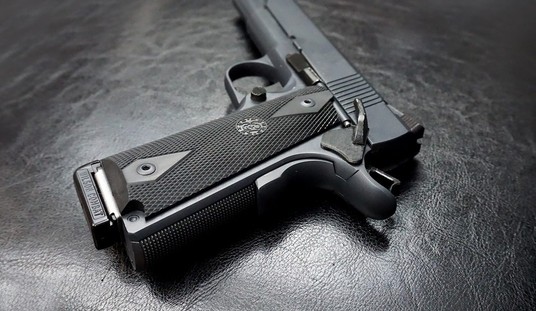
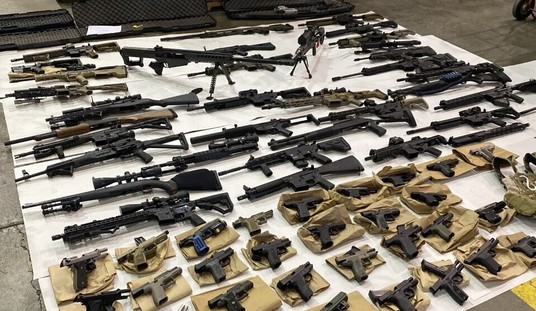
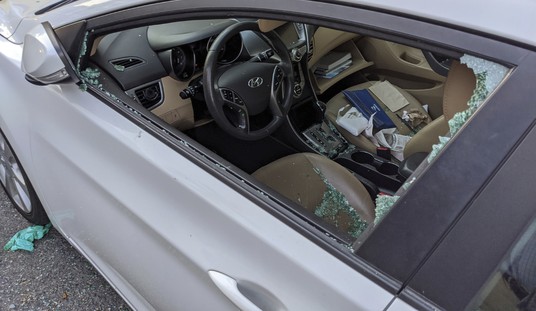
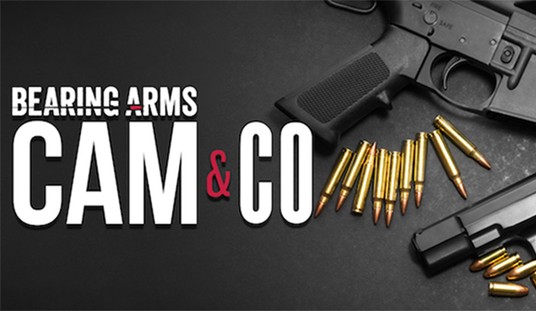
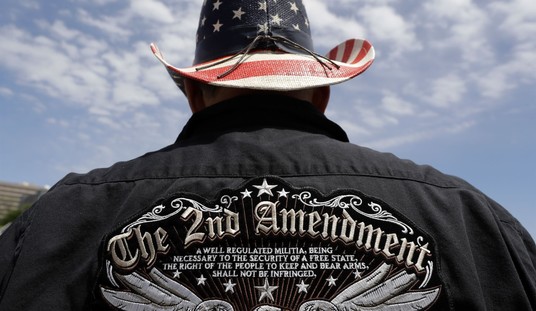
Join the conversation as a VIP Member